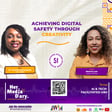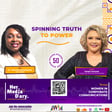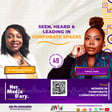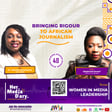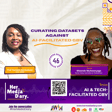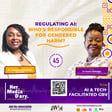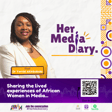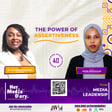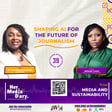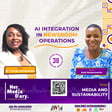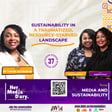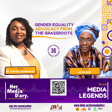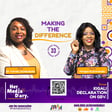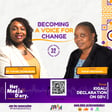
Her media diary episode 7: Josephine Mahachi
In this episode of Her Media Diary with Josephine Mahachi, A Deutsche Welle Journalist, founder of Click Africa and host of Live Chat with Josey, we talk conquering fears, perseverance, support systems and strength. Growing up in a family where the girl child played second fiddle to the boy child, she defied all odds and self-sponsored herself into Journalism school.
Her determination and the inspiration she got from Oprah Winfrey saw her wanting to change the narrative of how Africa is portrayed by western media. This gave birth to her first TV show Click Africa, which sought to showcase Africa and its great achievements. Through Click Africa, she has hosted African leaders, high profile business executives, as well as outstanding individuals who are making a mark in their different spheres.
Josephine believes perseverance leads to success. She advocates for originality in content and ideas when producing or pitching media products. This would distinguish an individual from others and leads to scaling greater heights.
Besides being a journalist of naught, she is also an investment consultant and businesswoman. She is aiming to shatter that glass ceiling and make a mark as an African media woman of repute. You can follow her on twitter @MahachieJosey
